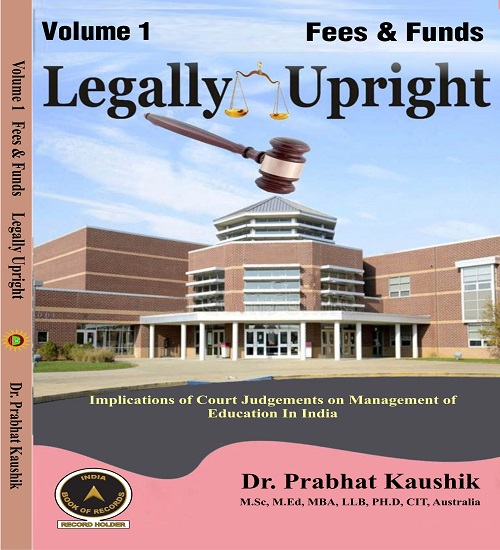Vol 1 : Fees & Funds : Legally Upright
₹1,150.00 ₹1,000.00
We have put a lot of focus on making sure the items get delivered to our customers as quickly as possible. We offer free Shipping all over India.
Delivery Time: 10-15 business days
Standard delivery items typically arrive within 2-5 days. Any specific item may take upto 10-15 days to arrive. Please allow atleast 15 days before enquiring about lost or missing items.
In case the delivery is required within a specific time period, it is necessary to mention about it at the time of placing the order.
Please allow additional time for your orders to arrive over the bank holiday weekends. We suggest allowing an additional 2-3 days for your packages to arrive to allow for delays within the mail.
It is up to you to make sure that your address details are entered correctly and accurately. We cannot be responsible for delivery problems caused by inadequate address details.
If you need help with your order, please write to us at anuradhaprakashan.official@gmail.com
Related products
-
Sale!

Rumi
₹800.00₹750.00 -
Sale!

Ecstasy of My Delhightful poems Hardcover
₹350.00₹340.00 -

-



